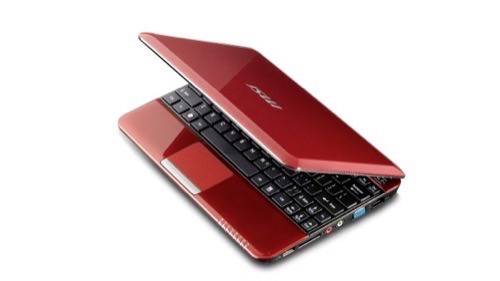
It looks like 2013 will mark the end of the odd little platform known as the netbook. And if anyone cares – or even notices – it’ll be something of a miracle.
The Taiwanese hardware-sector rumor mill has new grist in its headlines this week: announcements from Asustek and Acer detailing the end of production for these companies’ respective netbook product lines. There are big qualifiers on this news, because of the source – DigiTimes has gotten these things wrong before.
Still, this is one of those pieces of news that sounds plausible because netbooks never turned out to be the market behemoth they were initially hyped to be. We saw signs that netbooks were dying as far back as 2010 – the same year the first iPad came out. Dell pulled the plug on its netbook line back in 201, with HP and Samsung following suit.
Running The Autopsy
A lot of people will point to the rise of the iPad and other tablets as the reason netbooks died, and this is one case where conventional wisdom is probably right.
The idea of a lightweight, portable computing platform was very compelling towards the end of the first decade of the 21st Century, and hardware manufacturers approached this goal by trimming down laptops or beefing up smartphones.
PC/laptop makers got there first, with the Intel Atom-based small laptops that were incredibly lightweight. Unfortunately, we’re not just talking the mass-times-gravity kind of weight, either. Light on memory, storage and computing power, early netbooks could barely run the operating system usually thrust on them by their makers (usually Windows XP, Windows Vista or Windows 7), let alone useful applications.
That was my own experience when I picked up a netbook in late 2009. Ideally, this device was to serve as an on-the-floor writing tool when I was attending trade shows and conferences. Laptops are all well and good for this, but after half a day of lugging the things around, they can start to seem mighty heavy. A much-lighter netbook seemed like the perfect solution.
The problem was, the netbook I bought had little on-board storage after Vista hogged much of the solid-state drive, and the thing was slow as molasses. I was able to alleviate the performance issues by installing Linux on it, but the local storage issue was never really solved. The cramped keyboard and minuscule screen didn’t help much, either.
Netbooks Stuck In The Middle
Then along came the iPad, and all bets were off. That, and the Macbook Air my daughter saved up to buy on her own, convinced me that the netbook platform was simply not going to work for me or my family.
Given every manufacturers’ departure from the platform, I’m not alone. The aforementioned Air and the Intel-based Ultrabooks seem to be filling in the niche for those users unconvinced that a tablet can be a decent productivity platform, and there seems to be little rending of garments about the loss of the netbook.
It’s not quite over for netbooks yet. There still seems to be some activity around Google’s Chromebooks, which sorta-kinda fall into the netbook category. Chromebooks are heavily tied to Google services, and are targeting a different user than traditional netbooks. But if Google’s own Nexus tablet products (and any other Android-based tablets) keep doing well, I have a feeling even this relative of the short-lived netbook platform will be destined for the recycle bin, too.
Image courtesy of Intel.

















